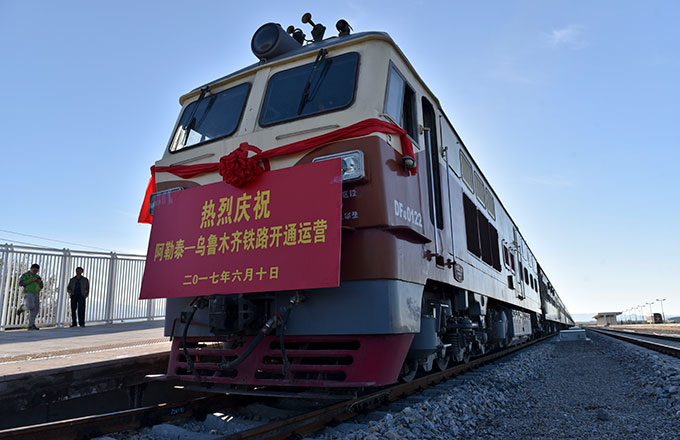No 1 Document for 2010
IV. Promoting urban-rural reform in a coordinative way to enhance the impetus of agricultural and rural development.
18. Maintain and further improve the basic rural economic system. Further improve laws, regulations and policies regarding rural land contracting and formulate detailed methods to ensure the existing land contracting relationship remain stable and unchanged in a long time. Manage well the land contracting administration, and make sure that the four elements in the land contract system – land, area, written contract, and certificate – are received by the households. Expand the pilot program for contractual land use right registration and provide necessary funding for work in this regard. Strengthen regulation on the transfer of land use right and related services, improve land transfer market, and develop moderately large-scale operation of various forms on the basis of voluntary land transfer. Strictly enforce the Law on Mediation and Arbitration of Disputes over Contracted Rural Lands, and establish an arbitration system as soon as possible. Continue to carry out the grassland basic management system reform. Maintain fishermen's right to use water surface for aquaculture. Encourage localities with ripe conditions to carry out reforms with regard to the rural collective property right system.
19. Push forward on the rural land administration system reform in an orderly manner. Resolutely defend the "red line" for farmland. Establish a land protection compensation system. Designate essential farmland for permanent protection. Implement the farmland protection responsibility and accountability system at various levels of government, and audit, supervision and personnel departments of the upper-level government (CPC organizations) will conduct auditing and evaluation. Speed up registration and certificate issuance for collectively owned land, residential housing land, and collective construction land. Work expenditure in this regard should be included in government budget. Try to reach the target of issuing collective land ownership certificate to every rural collective economic entity entitled to the ownership within 3 years. Carry out rural land consolidation in an orderly manner. Strictly limit the practice of "linking the decrease and increase of construction land in urban and rural areas" to the pilot program. Land transfer quota should be included in annual land use administration plan. Residential housing land and land saved from village land consolidation still belong to the farmers’ collectives. Make sure that total urban and rural construction land does not exceed the ceiling. Ensure the quality of reclaimed land and protect farmers’ rights and interests. Regulate pilot programs on rural land management system reform following the principles of "strict review and screening, small scale pilot, isolated operation, and manageable risks." Speed up the process of revising the Land Administration Law.
20. Vigorously raise the level of organization of agricultural production and operation. Encourage family-based operations to adopt more advanced technologies and promote cooperation and consolidation among farmer households, so as to have a diverse agricultural operation system. Strengthen rural collective economic entities to effectively provide a wide range of services to farmers. Vigorously develop farmer professional cooperatives, push forward on building demonstrative cooperatives, and provide subsidies to co-ops that provide good services and have effective democratic governance. Loan guarantee firms sponsored by various levels of government should include farmers' co-ops as their target clients. Support some cooperatives with necessary conditions to launch credit co-op services. Provide assistance to farmers' cooperatives to establish their own agro-processing enterprises. Actively develop all kinds of market-based service providers to provide convenient, efficient, low-cost and high-quality services to farmers. Support "dragon-head" enterprises in expanding their outreach to farmers. Increase the earmarked funds for agricultural industrialization, support the construction of standardized production bases, and build demonstration zones for agricultural industrialization. Make progress in the "one featured product for each village to enrich farmers and strengthen villages" program and build demonstration villages for specialized production.
21. Actively promote forestry reforms. Improve the forestry support and protection system and establish modern forestry administration system. Deepen reforms on the collective forest tenure system with a focus on clarifying ownership and household contracts. Speed up other supplementary reforms. Regulate the transfer of collective forest tenure rights, and support the establishment of professional cooperatives consisting of forest farmers. Deepen reforms on logging management for collective forest and build a new mechanism for logging management and a new system for sustainable forest management. Improve the method for using forest tenure as collateral to get loans. Build a property appraisal system for forest resources as well as an appraiser system. Gradually expand the coverage of the forest policy insurance pilot program. Support the development of forest industries and increase forest farmers' income. Launch pilot programs for state-owned forest farm reform and support infrastructure construction in state-owned forestry farms. Carry out pilots on the reform of administration of state-owned forests and state-owned forestry resources.
22. Continue to deepen comprehensive rural reforms. Carry out further reforms of township administrative institutions. Continue to implement fiscal system reforms that put counties directly under the provinces and raise the fiscal capacity of counties and townships. Implement policies to ensure funding for the operations by village-level organizations. Following relevant plans and requirements, the central government and provincial governments will continue to provide funding for payment of debt accumulated from implementing rural compulsory education. Carry out pilot programs for solving other rural debts from offering public services and prevent new debt from occurring. Explore effective mechanisms for village-level public service provision under the principles of "government guidance, farmers’ voluntary participation, controlling upper limit, and subsidized by public finance." Carefully summarize experiences from the "case-by-case approval with subsidies from public finance" system for village public services or undertakings. Increase size of subsidies, and scale up the pilot scope. Continue to address the issue of farmers' burdens and prevent any rebound in farmers’ burdens. Implement policies for reforming the Supply and Marketing Cooperatives, strengthen lower level branches, and strengthen the service functions of county-level branches. Deepen state farm reform by separating the social functions from the enterprises and improving social security systems. Strengthen guidance to rural reform pilot areas.
23. Promote institutional innovation for urbanization. Actively and steadily push for urbanization. Improve the quality of urban planning and urban development, with a special focus on the development of medium and small cities and small towns. Deepen resident registration system reform and speedily implement the policy that relaxes requirements for establishing residency in medium and small cities and small towns – particularly county seats and central townships. Rural residents who meet the requirements can move to urban areas and have equal rights and benefits with existing residents. Improve housing conditions for migrant workers through various means. Encourage cities to bring under their urban housing security system migrant workers that have stable employment in the city and have lived in the city for a certain amount of time. Take targeted measures to address the issue of the new-generation migrant workers. Systematically study the new problems and issues that may arise in both urban and rural areas after the permanent move of migrant workers into cities. Vigorously develop county-wide economy. Take the opportunity of industrial relocation, promote featured industries and competitive projects to move to county seats and central townships, increase their carrying capacities, and speed up the transfer of rural population to small towns. Improve policies in support of small township development, such as fiscal policies and investment and financing policies. Support the development of medium and small cities and small towns in annual land use planning. Land saved from village land consolidation should be used, first of all, to supplement farmland. The part that is turned into construction land should be included in the annual land use plan, and should be primarily used for industrial development, so that farmers can conveniently find jobs locally. Continue with the "empowering counties" reform pilots. Promote administrative reforms in townships with fast economic growth and strong population carrying capacity. Delegate more administrative powers to such townships to meet the need for economic and social development.
24. Raise the level of agricultural opening-up. Support expanding export of competitive agricultural products. Provide convenient and preferential treatment in terms of customs clearance and inspection and quarantine. Push forward the establishment of a traceability system for agricultural products and support the creation of for-export production bases. Promote innovation in agricultural export credit and explore the possibility of building a risk management mechanism combining export credit insurance and agricultural insurance. Take a proactive approach in addressing international trade barriers and support industrial associations and dragon-head enterprise defending their interests. Develop international agro-processing trade by taking advantage of special customs supervision zones and export processing logistics. Strengthen international cooperation in agricultural technology and agricultural resource development. Formulate policies to encourage some enterprises to "go out." Guide foreign investment to industries that fit our development strategies. Raise the level of foreign fund utilization. Strengthen management and control of agricultural export and import, adopt a flexible and efficient agricultural trade policy, and build a monitoring and early warning system for export and import of agricultural products and inputs. Forcefully crack down smuggling of agricultural products. Earnestly strengthen quality supervision over agricultural imports exports.
- Typhoon Merbok to hit southern China coast Monday night
- Subgroups of BRICS brainstorm at meeting
- From imitation to innovation: China's fashion industry gets tech boost
- Nobel laureate heads Chinese institute on economics, AI application eyed
- Altay's isolation from railway network comes to an end



















